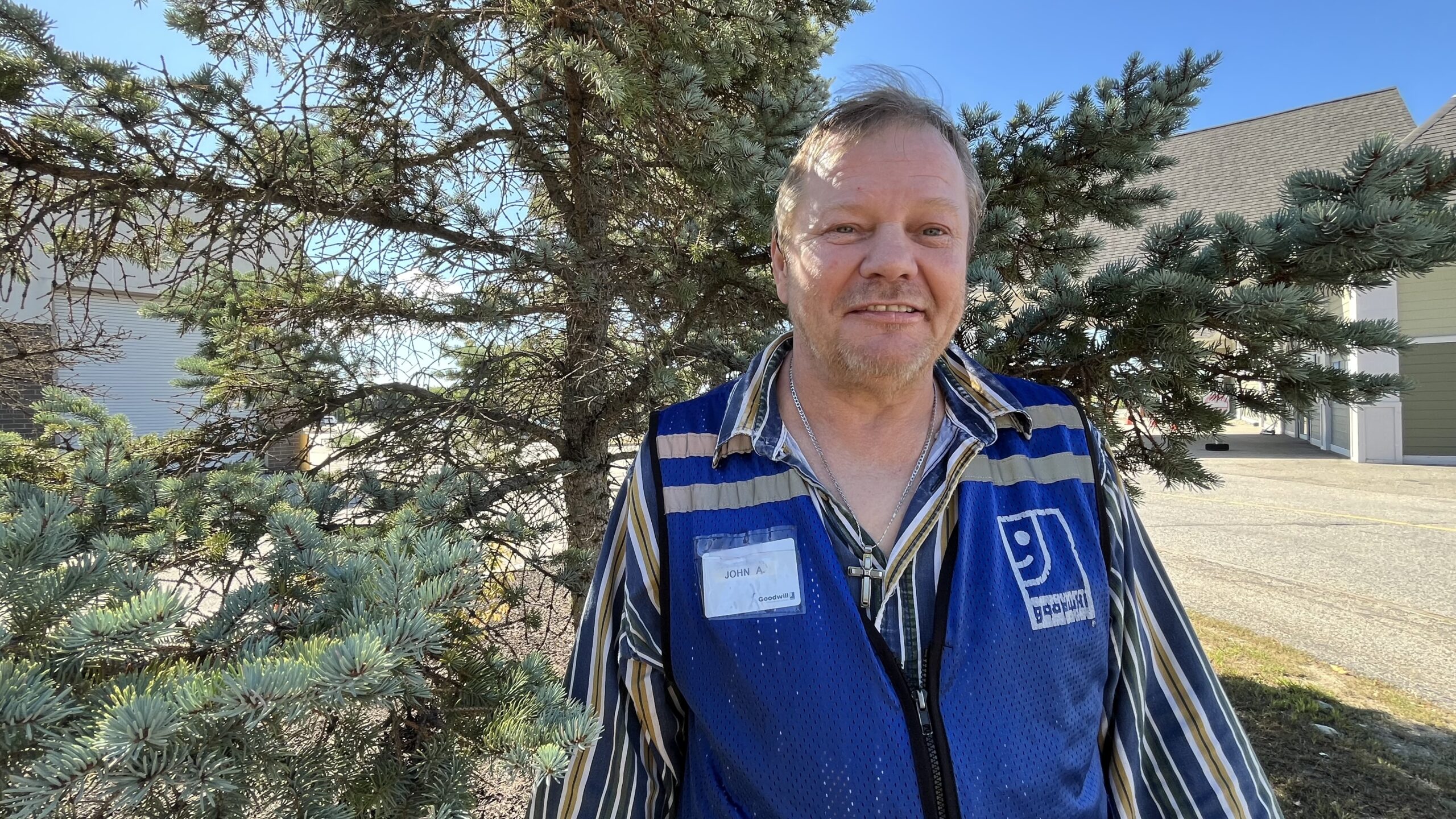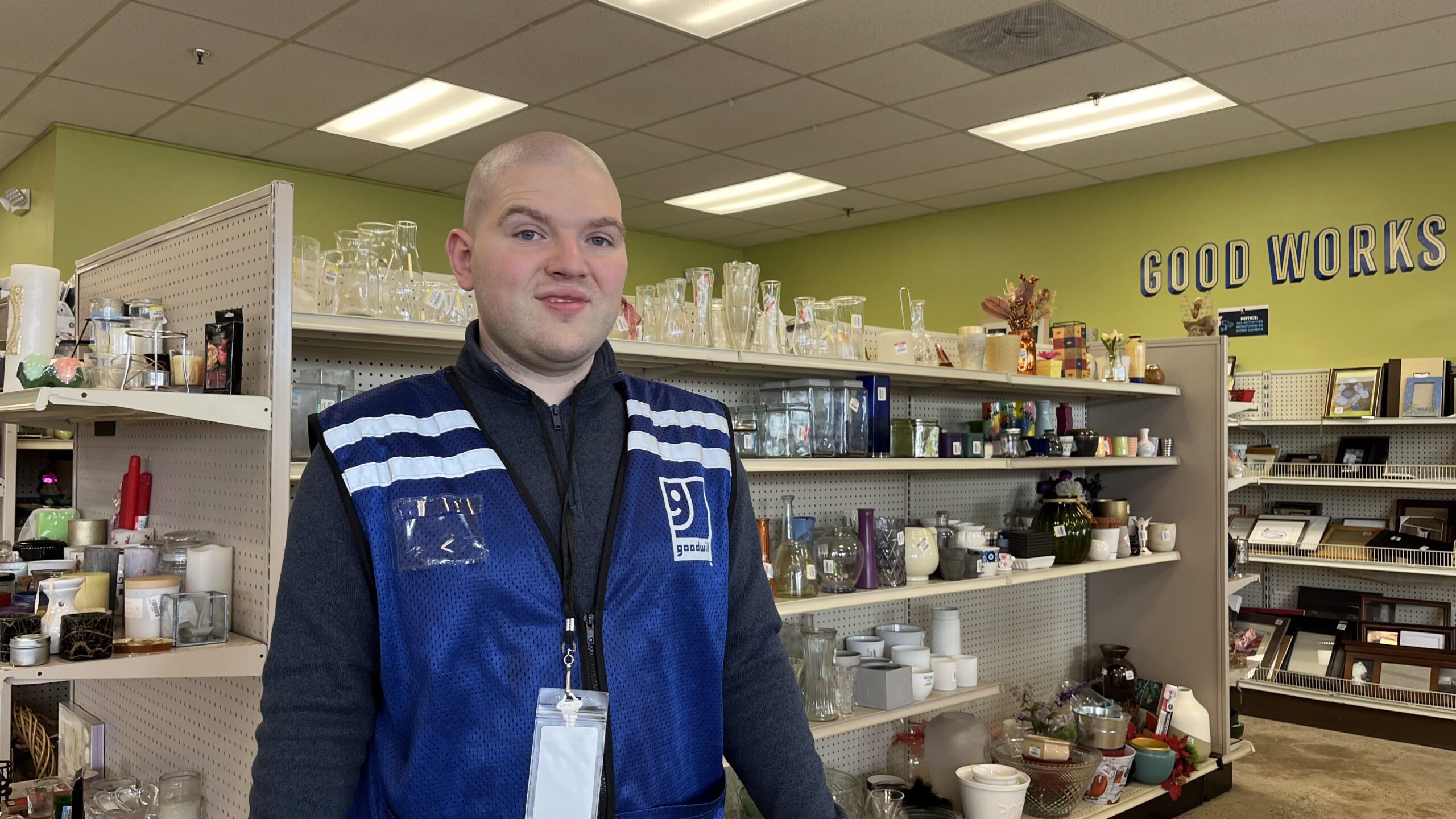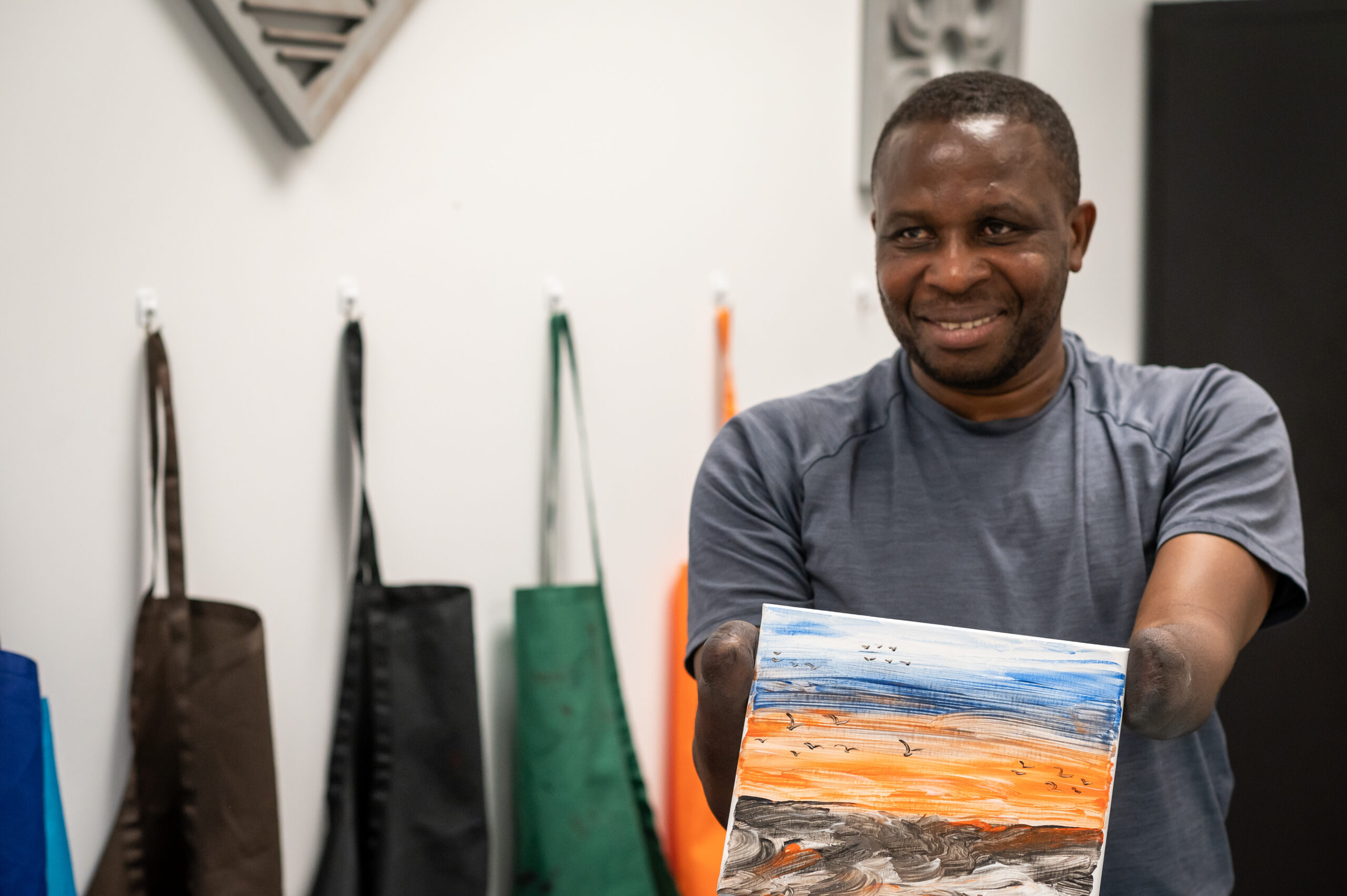Success Stories
AmeriCorps member Maggie helps student fight effects of poverty at two rural Maine schools
June 26, 2020
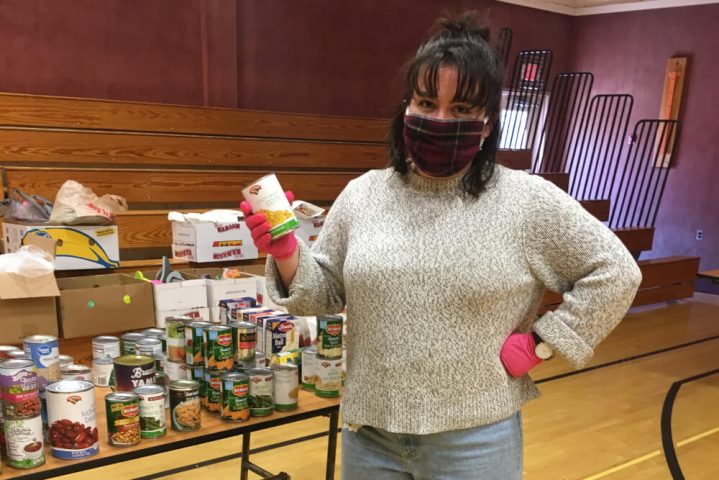
“When I was thinking about my own elementary school experience and the things I remember that stuck with me, it was the special touches that educators around me did,” said Maggie Burgos, a member of Goodwill’s AmeriCorps Multilingual Leadership Corps.
For the last two years, Maggie has served with the TREE (Transforming Rural Educational Experiences in Education) Program out of the Cobscook Institute at Milbridge and Jonesport Elementary Schools in Washington County, Maine. The program is founded on the idea that adverse childhood experiences affect the mental health of people long after their childhood. But a child can have different life outcomes if they have the support they need to build resiliency and the skills to navigate those experiences. This starts with ensuring that basic needs are met, like food, clean clothes, and restful sleep.
TREE staff work collaboratively with teachers, parents, and other community organizations to assess the needs of individual students and rise to meet them. The program is being piloted in Washington County, a very rural part of Maine.
Fighting the affects of poverty in rural Maine schools
“Rural areas are affected by poverty in a different way than suburban poverty,” Maggie said. At the two schools that welcomed the TREE program, the poverty rate is high. “Seventy percent of students qualify for a free or reduced lunch.”
When families face poverty, the impacts can hinder a student’s ability to learn. For example, a child might arrive at school hungry or in wet or dirty clothes. What’s happening at home rolls over into the school day. “So many reasons [can] prevent a student from being able to engage,” Maggie said.
In Washington County, there’s also a high population of Latinx and ELL students, as well as kinship care, where children are living with grandparents or other relatives.
“All of these dynamics are going on,” Maggie said. “These students need support. We run the food pantry, we have a clothing closet with boots and snow boots and pants and other clothes, and we help support the family with things like gas cards.”
Another primary support is mental health.
“We have three different mental health practitioners, two of whom are also registered play therapists who come into the schools two days a week.”
Students are able to meet with those therapists — with parent permission — and TREE covers the costs of the copay. For families who don’t have insurance, TREE covers the cost outright. Between food insecurity and having access to mental health support, TREE provides ground-level support that builds on that.
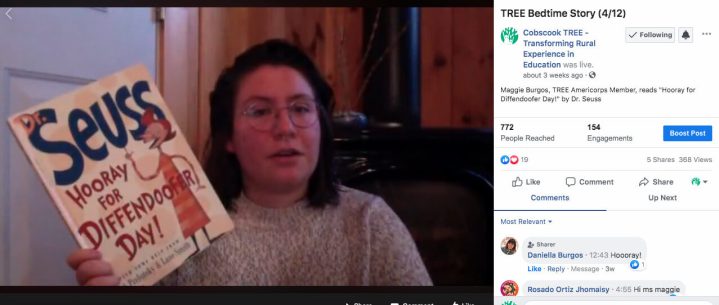
How Maggie’s work as an AmeriCorps member helps
“I’ve been a part of a leadership group that works with older students,” Maggie said. “We do team building and skill building and also go through a social emotional curriculum. All our work is centered on student voice and empowerment.”
Power is taken away from kids in situations where they have no control, and that sense of powerlessness can become pervasive. To counter that, TREE provides opportunities for students to feel a level of control and the autonomy to make choices for themselves.
“Everything that we do is centered on student voice,” Maggie said.
But that work doesn’t happen overnight.
Supporting children’s dreams
“Relationship building is key in trauma-informed care,” Maggie said. “You can be the most sunshine-y genial person, but unless you really show up over and over again, it’s hard to build trust in relationships.”
That’s true for the whole community.
“This work only happens when we work in partnership with teachers.”
To that end, Maggie said, “we have been showing up day in and day out alongside them, on the toughest days of the school year, working with students with big challenges.”
The program helps create enthusiasm around the school day, too. “TREE tries to celebrate teachers who go the extra mile with those special touches,” said Maggie. “Those are the things that stick with us most. We try to find a way to insert a level of joy into each of our buildings every day.”
One way they do that is with the Someday program. At the beginning of the school year, students are invited to fill in the blank: “Someday at school, I want _____.”
Students write things like “I want a second recess,” or “I want to watch a movie with my class and eat popcorn.” Students ask to help with the kindergarten or pre-K class. They ask for their older brother or sister to come read a story. One student in Kindergarten asked to sit on stage in front of the whole school with country singer Jason Aldean. Staff played a video of Jason and the student sat on stage and sang her heart out in front of the whole school.
“It helps them get excited to go to school,” said Maggie. “Even when it’s somebody else’s someday.”
“Somedays” become memories those students will carry with them. They also allow students to feel that their voice is being heard.
Helping children through the pandemic
When schools closed in early March to slow the spread of coronavirus, everyone had to adapt. That includes teachers, students, families, and the TREE program.
“Our work has changed a lot,” said Maggie. “But in other ways it hasn’t.” The focus continues to be on meeting basic needs, but also trying to give support to parents who are working or going to school themselves. Mental health work has gone to telehealth, where students meet with therapists online.
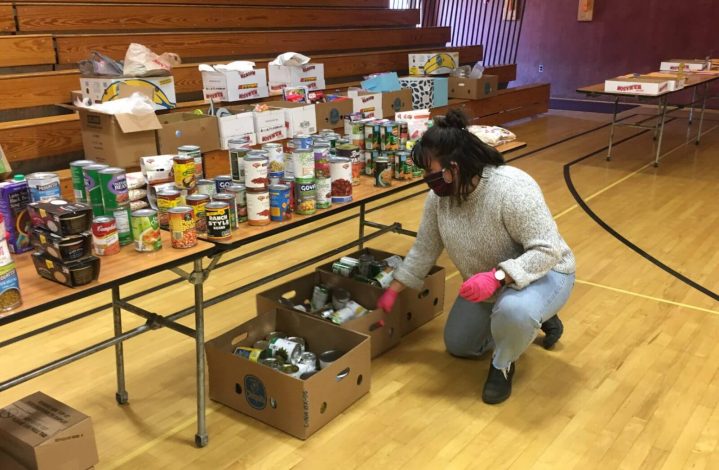
“We’re working closely with Maine Seacoast Mission — Good Shepherd Food Bank — to make sure that the food pantry is more robust than ever, that food deliveries are going to homes, that we’re reaching out to parents on an individual level asking them, ‘How can we support you?’”
Sometimes parents just need to share their frustrations. Sometimes kids want craft supplies.
“It feels good to listen to parents, understand their needs, and respond,” Maggie said. “We’re doing a lot on our Facebook page, programming and communicating with families and the community.”
But they’re not working in a silo. “None of this work happens on our own,” said Maggie. “My experience with the Down East community is that people work in partnerships so often. TREE has been working so closely with Main Seacoast [and] Mano en Mano,” among others. “It’s so valuable to have these partnerships and to be working collaboratively.”
Another way staff stays connected to students is with the TREE story time, which takes place online every Sunday through Thursday night. Staff members from both schools take turns reading a bedtime story to students.
“The feedback from families is great,” Maggie said. “And teachers appreciate having another level of connection with their students.”
There is also “micro-adventure Mondays,” where kids learn new skills. Recently students learned to finger knit on the Zoom online platform, and some parents even joined in.
That said, they haven’t been able to reach everybody. It’s a reality faced by educators around the country, but they’ll keep trying, keep brainstorming new ways to connect, and continue to support families in all the ways they can. Because every one of these kids deserves it.
While so much of life looks different than it did prior to coronavirus, the work of the TREE program is more important than ever. “Especially during this time, our most vulnerable kiddos still need that support. I fell in love with the school and the community and felt really inspired by the mission of TREE,” said Maggie. And that hasn’t changed.
For more about Goodwill’s AmeriCorps programs (including how to join as a member, or as a host site): https://goodwillnne.org/jobs/americorps/

